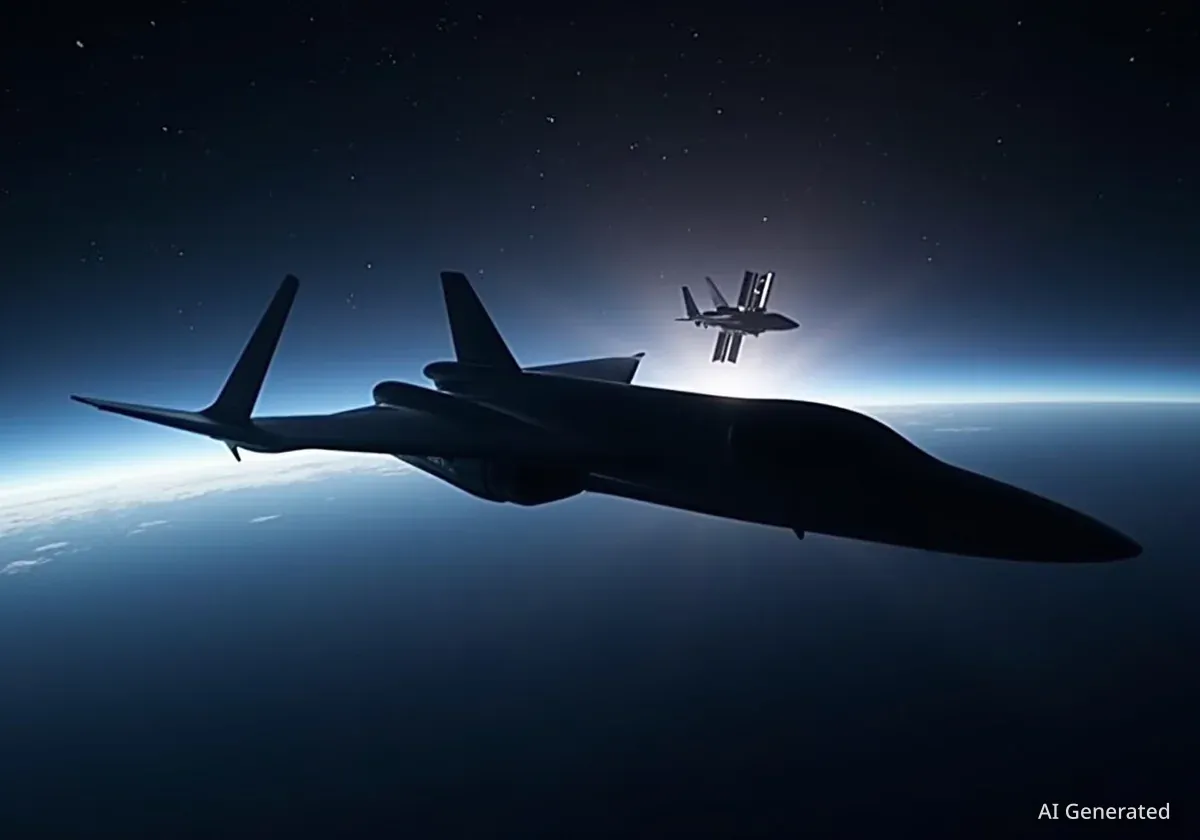Military leaders from several NATO countries have declared that space is now a war-fighting domain, marking a significant shift in strategic language and doctrine. The assessment, made at the Space Defense and Security Summit in Paris, reflects growing concerns over threats to in-orbit assets and a new era of military competition beyond Earth's atmosphere.
This change in rhetoric is supported by a notable increase in global military space spending, which has surpassed civil space expenditures for the past two years. The new consensus among allies points toward the urgent need for new defense architectures, rapid response capabilities, and a unified operational doctrine for space.
Key Takeaways
- NATO military leaders have publicly shifted their stance, now referring to space as an active "war-fighting domain."
- Global government spending on space defense reached $73.1 billion in 2024, with military budgets now exceeding civil space programs.
- Officials identified specific threats from Russia and China, including over 200 anti-satellite weapons currently in orbit.
- Nations like Germany are developing new space defense architectures and calling for a common NATO space doctrine to counter emerging threats.
A Shift in Strategic Language
During the Space Defense and Security Summit in Paris, senior military officials presented a starkly different view compared to previous years. The consensus moved beyond discussing potential threats to openly classifying space as an operational theater of conflict.
"The rule-based international order in space is nearly over," stated Brig. Gen. Jürgen Schrödl, a division head for space at the German Ministry of Defence. "We have to accept that space is a tested domain, is a war-fighting domain, is becoming a war-fighting domain."
This sentiment was echoed by other leaders, who noted the acceleration of hostile activities. Maj. Gen. Vincent Chusseau, commander of French Space Command, emphasized that "things are accelerating very fast," adding, "Space is a really full operational domain, we talk about war fighting in space."
A New Era for Space Policy
For decades, space was largely considered a domain for scientific exploration and civil applications under international treaties promoting peaceful use. The recent shift in language from diplomatic to military terminology signifies a fundamental change in how major world powers view the strategic importance and vulnerability of their assets in orbit.
Rising Defense Spending and Identified Threats
The change in tone is backed by financial data. According to summit organizer Novaspace, global government spending on space defense and security in 2024 totaled $73.1 billion. For the first time, military space budgets have outpaced spending on civil programs.
Hermann Ludwig Moeller, director of the European Space Policy Institute, observed, "What you see is that it is now the military domain that is leading. This is really clear compared to last year, the language and what is behind the language has shifted."
Global Space Defense Spending in 2024
- United States: $53.1 billion
- China: $9.3 billion
- Russia: $2.3 billion
- France: $2.1 billion
- Germany: $655 million
Source: Novaspace
Officials detailed specific threats from adversarial nations. Maj. Gen. Isaac Manuel Crespo Zaragoza of the Spanish Air and Space Force noted that China is accelerating its activities to achieve space superiority. Meanwhile, France's Maj. Gen. Chusseau listed a full spectrum of Russian capabilities, including anti-satellite missiles, electronic warfare, laser dazzling, and cyber attacks.
Brig. Gen. Christopher Horner of the 3 Canadian Space Division revealed a startling figure, stating that more than 200 anti-satellite weapons are now circling Earth. He described this as a "shocking number of capabilities" threatening allied communications and observation satellites.
The Need for a New Military Doctrine in Space
With the acknowledgment of space as a contested domain, military leaders are now focused on developing new strategies and capabilities. Germany, in particular, has made a significant policy change.
"The big change is Germany finally realized that space is a war-fighting domain," said Maj. Gen. Michael Traut, commander of the German Space Command. He explained that Germany will design a new military space-defense architecture by the end of this year.
This architecture will include a "multifunctional, multi-orbit constellation" planned for completion by 2029. Maj. Gen. Traut stressed the need for both defensive and offensive tools, stating, "Those operational capabilities consist of defensive and offensive means, shield and sword."
Developing a Unified Allied Response
A key challenge identified at the summit is the creation of a common space doctrine for allied nations. "This is still an open issue for us, to develop a common space doctrine," Traut said. Critical questions remain about operational procedures, decision-making authority, and the management of space battles.
The discussion has shifted toward tactical immediacy. "Space becomes more and more tactical because technology is there, kill chains need to be faster," Traut explained. "And if we talk about kill chains, we talk about seconds and minutes."
Adapting to a New Tactical Reality
The speed of modern conflict requires a new generation of space assets. Canada's Brig. Gen. Horner questioned how allies can maintain a "decisional advantage when the fight begins" and replace capabilities quickly.
He suggested a move away from large, expensive satellites toward smaller, more agile systems. "How do we respond with some immediacy so that we can launch a tactical capability in 96 hours?" he asked, highlighting the need for tactically responsive launch capabilities.
This idea of rapid deployment also serves a deterrent purpose. Germany's Brig. Gen. Schrödl noted that the ability to quickly replace degraded satellites can discourage attacks. He also confirmed that German satellites are already experiencing "a lot of incidents," including intentional disturbances from Russia.
Lt. Gen. Bertrand Le Meur of the French Armed Forces Ministry warned of a cost asymmetry that favors adversaries. He described expensive allied space assets as a "honeypot," explaining that cheaper offensive capabilities are becoming more accessible to a wider range of nations. "The figures globally are against us," he concluded.





